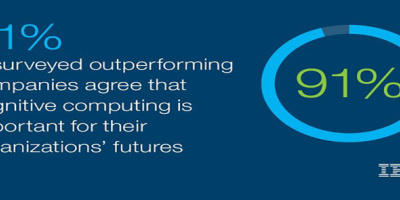CFOs want to shift more focus to analysis and decision support, but few have made much progress shifting the workload.
IBM has announced the findings of a major new study of over 1,900 chief financial officers (CFOs) and senior finance executives from 81 countries and 35 industries worldwide, which reveals that more than 60 percent of CFOs plan major changes to respond to the new economic climate.
CFOs and senior finance executives believe the already intense pressure on three fronts--reducing the enterprise cost base, making faster, more accurate decisions and providing more transparency to external stakeholders--will increase dramatically over the next three years.
The IBM study is the largest sample of CFO sentiment during the worst economic downturn in decades. As part of the impetus for change, study participants ranked "providing inputs into enterprise strategy" number one when asked what was most important. Surprisingly, cost reduction was not at the top of the CFO agenda. However, they also revealed a major gap in organizational effectiveness, as only 50 percent feel their finance organizations are currently effective in providing the necessary business insight to support these broader enterprise priorities.
"Never before has the importance of strong finance capabilities been highlighted more than during the recent global economic downturn," said William Fuessler, global leader, financial management, IBM Global Business Services. "Our study shows that CFOs are expected to provide fact-based leadership and strategic decisions grounded in sophisticated analyses to help navigate the enterprise through these new economic waters."
Since IBM’s first CFO study in 2003, CFOs have continually stated their aspirations to shift more focus to analysis and decision support, however few have made significant progress shifting the workload. Among finance’s effectiveness gaps, the largest is in the area of driving integration of information. CFOs’ responses indicate this is a major enabler for practically every area of business insight, but, at the same time, show just how difficult this kind of integration is to accomplish.
One group of CFOs, dubbed "value integrators," were found to consistently out-perform their peers in all key financial metrics by driving two key qualities across their organization:
• Finance efficiency--the degree of common process and data standards across the organization
• Business insight--the maturity level of Finance talent, technology and analytical capabilities dedicated to providing business optimization, planning, and strategic insights.
Value integrators have found a way to excel and navigate an uncertain economic climate. The study indicates that enforcing process and data standards, integrating information, and applying business analytics are key capabilities that enable improved business insight and risk management.
In fact, when compared to their peers, their enterprises outperform on every financial measure assessed, including return on invested capital (ROIC), revenue growth, and EBITDA (earnings before interest, taxes, depreciation and amortization).
Since value integrators enjoy proportional representation across various dimensions of the data sample, their performance signals better practices and is not just a consequence of industry, geography or company size. Their finance operations reflect a pervasive corporate philosophy that encourages integration across functions to make smarter decisions that lead to better overall performance.
Predictive Insight
Many CFOs feel their finance organizations are more comfortable providing "tail lights" rather than "headlights." With the appropriate analytical capabilities spanning process, technology and talent, results of the study indicate finance can turn this wealth of financial and operational information into business insights, where decisions are no longer made on intuition, but are fact based.
Many respondents indicated that these capabilities can help finance uncover correlations among seemingly unrelated pieces of information and find patterns nearly impossible to detect manually. In many ways, finance’s persuasiveness as strategic advisor hinges on having superior business insight capabilities.
Businesses and governments need more advanced data analyses, scenario planning and even predictive capabilities to contend with rising complexity, uncertainty and volatility and, in certain regions, sustained lower growth.
Becoming a Value Integrator
The study findings indicate that CFOs are increasingly playing a significant role on strategic and operational matters to help the business make better decisions faster. Value integrators, at their core, integrate both efficiency and insight. "Value" conveys finance’s contribution to helping manage the enterprise, while "integrator" conveys the importance they place on standardizing and integrating information and processes, necessary enablers to partner effectively with the business.
Value integrators are more than just information clearinghouses. Finance’s mission should be helping the company think as an overall business instead of individual areas. Not surprisingly, Value integrators indicated that a top priority was attracting and retaining the right talent and developing people in finance in support of these increased demands.
Value integrators--more than any other group--are equipped to advise at an enterprise level. They are positioned to evaluate business opportunity and risk in an end-to-end context and recommend difficult trade-offs among units, markets and business functions.
About the Global CFO Study
The findings of this report are based upon a survey conducted in the spring and summer of 2009 by IBM Global Business Services’ Financial Management practice and the IBM Institute for Business Value (IBV). Over 1,900 chief financial officers and senior finance executives from 81 countries and 35 industries participated in structured interviews or online surveys designed to capture insights on how finance professionals are affected by and deal with performance, risks, operational levers and governance. The majority of these interviews were conducted in person by IBM practitioners, with the remainder interviewed online. Participants represent organizations across a variety of industries, geographic locations and revenue size.
For access to the full study findings and case studies, please visit: http://www.ibm.com/cfostudy
To join the conversation about smarter leadership, please visit: http://smarterleaders.tumblr.com





















 More than ever, there is a demand for IT to deliver innovation. Your IBM i has been an essential part of your business operations for years. However, your organization may struggle to maintain the current system and implement new projects. The thousands of customers we've worked with and surveyed state that expectations regarding the digital footprint and vision of the company are not aligned with the current IT environment.
More than ever, there is a demand for IT to deliver innovation. Your IBM i has been an essential part of your business operations for years. However, your organization may struggle to maintain the current system and implement new projects. The thousands of customers we've worked with and surveyed state that expectations regarding the digital footprint and vision of the company are not aligned with the current IT environment. TRY the one package that solves all your document design and printing challenges on all your platforms. Produce bar code labels, electronic forms, ad hoc reports, and RFID tags – without programming! MarkMagic is the only document design and print solution that combines report writing, WYSIWYG label and forms design, and conditional printing in one integrated product. Make sure your data survives when catastrophe hits. Request your trial now! Request Now.
TRY the one package that solves all your document design and printing challenges on all your platforms. Produce bar code labels, electronic forms, ad hoc reports, and RFID tags – without programming! MarkMagic is the only document design and print solution that combines report writing, WYSIWYG label and forms design, and conditional printing in one integrated product. Make sure your data survives when catastrophe hits. Request your trial now! Request Now. Forms of ransomware has been around for over 30 years, and with more and more organizations suffering attacks each year, it continues to endure. What has made ransomware such a durable threat and what is the best way to combat it? In order to prevent ransomware, organizations must first understand how it works.
Forms of ransomware has been around for over 30 years, and with more and more organizations suffering attacks each year, it continues to endure. What has made ransomware such a durable threat and what is the best way to combat it? In order to prevent ransomware, organizations must first understand how it works. Disaster protection is vital to every business. Yet, it often consists of patched together procedures that are prone to error. From automatic backups to data encryption to media management, Robot automates the routine (yet often complex) tasks of iSeries backup and recovery, saving you time and money and making the process safer and more reliable. Automate your backups with the Robot Backup and Recovery Solution. Key features include:
Disaster protection is vital to every business. Yet, it often consists of patched together procedures that are prone to error. From automatic backups to data encryption to media management, Robot automates the routine (yet often complex) tasks of iSeries backup and recovery, saving you time and money and making the process safer and more reliable. Automate your backups with the Robot Backup and Recovery Solution. Key features include: Business users want new applications now. Market and regulatory pressures require faster application updates and delivery into production. Your IBM i developers may be approaching retirement, and you see no sure way to fill their positions with experienced developers. In addition, you may be caught between maintaining your existing applications and the uncertainty of moving to something new.
Business users want new applications now. Market and regulatory pressures require faster application updates and delivery into production. Your IBM i developers may be approaching retirement, and you see no sure way to fill their positions with experienced developers. In addition, you may be caught between maintaining your existing applications and the uncertainty of moving to something new. IT managers hoping to find new IBM i talent are discovering that the pool of experienced RPG programmers and operators or administrators with intimate knowledge of the operating system and the applications that run on it is small. This begs the question: How will you manage the platform that supports such a big part of your business? This guide offers strategies and software suggestions to help you plan IT staffing and resources and smooth the transition after your AS/400 talent retires. Read on to learn:
IT managers hoping to find new IBM i talent are discovering that the pool of experienced RPG programmers and operators or administrators with intimate knowledge of the operating system and the applications that run on it is small. This begs the question: How will you manage the platform that supports such a big part of your business? This guide offers strategies and software suggestions to help you plan IT staffing and resources and smooth the transition after your AS/400 talent retires. Read on to learn:
LATEST COMMENTS
MC Press Online